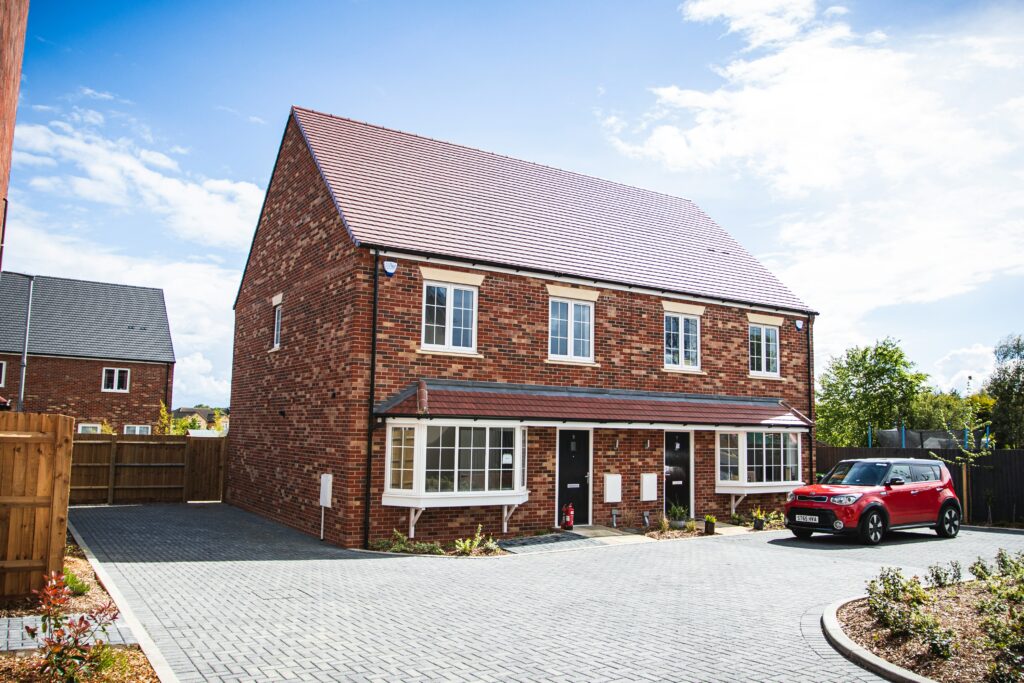
Leasehold vs Freehold When Selling: What You Need to Know
If you’re planning to sell your property in the UK, one of the first and most important things to consider is whether your home is leasehold or freehold. While these terms are frequently used in property listings, many homeowners are unsure what they mean or how they will affect the sales process.
In this blog, we’ll go over freeholder vs leaseholder ownership, explain how each affects your sale, and highlight key steps you can take to ensure a smooth, profitable sale.
Leasehold vs freehold: What’s the difference?
Freehold explained
A freehold property means that you own both the building and the land it sits on outright, with no time limits or landlords involved. This is the most straightforward form of property ownership in the UK.
As a freeholder, you are fully responsible for the property’s upkeep and maintenance, but you are not required to pay ground rent, service charges, or obtain third-party permission to make changes to your home (subject to planning permissions, of course).
The majority of houses in the UK are sold as freeholds, and buyers prefer this type of ownership for its simplicity and long-term security.
Leasehold explained
In contrast, a leasehold property means that you own the building but not the land on which it is built. Instead, you lease the property from the freeholder (also known as the landlord) for a set number of years – usually 99, 125, or even 999 years. When the lease expires, ownership technically returns to the freeholder, unless extended.
Leaseholders are typically required to:
- Pay annual ground rent
- Contribute to the service and maintenance costs
- Obtain approval from the freeholder for specific structural changes
- Adhere to the lease conditions (e.g., no pets or subletting)
The majority of flats in the UK are sold as leaseholds, particularly in England and Wales.
How ownership type affects the sales process
Whether you’re selling a leasehold vs freehold property, your type of ownership can significantly affect your sale timeline, buyer interest, and potential return.
Selling a freehold property
Selling a freehold home is usually easier because it does not have as many restrictions as leaseholds. Freehold properties are particularly appealing to buyers because:
- They avoid ongoing costs such as ground rent and service fees
- There are no lease terms to consider
- Buyers have complete control over the property
If you’re selling a freehold home, your primary responsibilities include ensuring that the property is well-presented and legally compliant (e.g., with an up-to-date EPC certificate) and that all paperwork is complete.
Selling a leasehold property
Selling a leasehold property may involve additional complexities. The length of the lease, the terms of the agreement, and the financial obligations related to the property can all have an impact on buyer interest and property value.
Key factors to consider include:
1. Length of lease
One of the most important considerations is how much time remains on the lease. A lease with less than 80 years remaining can raise red flags for buyers and mortgage lenders. Properties with short leases may:
- Be harder to sell
- Require the seller to reduce the asking price
- Need to extend the lease before sale, which can cost thousands of pounds
In contrast, properties with long leases (more than 100 years) are typically easier to sell.
2. Ground rent and service charges
Prospective buyers will look into any ongoing costs associated with the property. Ground rent that is unusually high or rising, as well as high service charges, can deter potential buyers.
Make sure you have a detailed breakdown of these costs and are ready to share it with your estate agent and potential buyers.
3. Management company or freeholder communication
Buyers and their solicitors will want to know who manages the building, how responsive they are, and if there are any outstanding disputes. Providing evidence of professional management can help to ease concerns.
4. Alterations and Permissions
If you’ve made any changes to the property, such as replacing windows, demolishing internal walls, or expanding the kitchen, you may have required permission from the freeholder. Make sure you have documentation to prove that all work was approved.
Recent leasehold reforms: What sellers need to know
In recent years, leasehold practices in the UK have come under intense scrutiny. The Leasehold and Freehold Reform Act, passed in 2024, has made significant changes to make the system more equitable for homeowners. These include:
1. Abolition of marriage value
Previously, when a lease expired before 80 years, sellers were required to pay a ‘marriage value’ to the freeholder when extending the lease. This additional cost could reach tens of thousands of pounds. The new law eliminates this charge, making lease extensions more affordable.
2. Longer and simpler lease extensions
Leaseholders now have the statutory right to extend their lease for 990 years (up from 90), with no ground rent required. This reform increases buyer confidence and the long-term value of your property.
3. Greater transparency
Freeholders and managing agents are now required to provide more detailed information about service charges and maintenance projects. This transparency enables buyers to make more informed decisions, and sellers to present a more trustworthy offering.
Which ownership type is better for selling?
While freehold properties are easier to sell because they are free of ongoing charges and restrictions, leasehold homes are not unsellable. Leasehold flats in major cities are still in high demand, especially in well-managed developments with long leases. Both types of ownership can be successfully sold if you’re upfront with buyers and proactive about addressing any potential red flags.
Tips for selling a leasehold property quickly
If you want to speed up your leasehold property sale, consider the following:
- Extend the lease if it is less than 90 years old, ideally before it falls below 80
- Obtain a leasehold information pack early, as solicitors will require it during the conveyancing process
- Be upfront about all fees and restrictions
- Ensure that building maintenance is up to date, particularly in communal areas
- Choose a buyer who is experienced with leaseholds, such as a cash buyer or property investor
Need to sell fast?
If you need to sell a leasehold or freehold property quickly, particularly if you have time constraints, financial pressures, or a problematic lease, Sell House Fast can provide a stress-free, no-obligation offer.We specialise in buying all types of property in the UK, and we buy any house, flat or bungalow, regardless of lease type or condition. We will handle the paperwork, pay your legal fees, and complete the sale in a timeframe that works for you. Get your free cash offer today.


